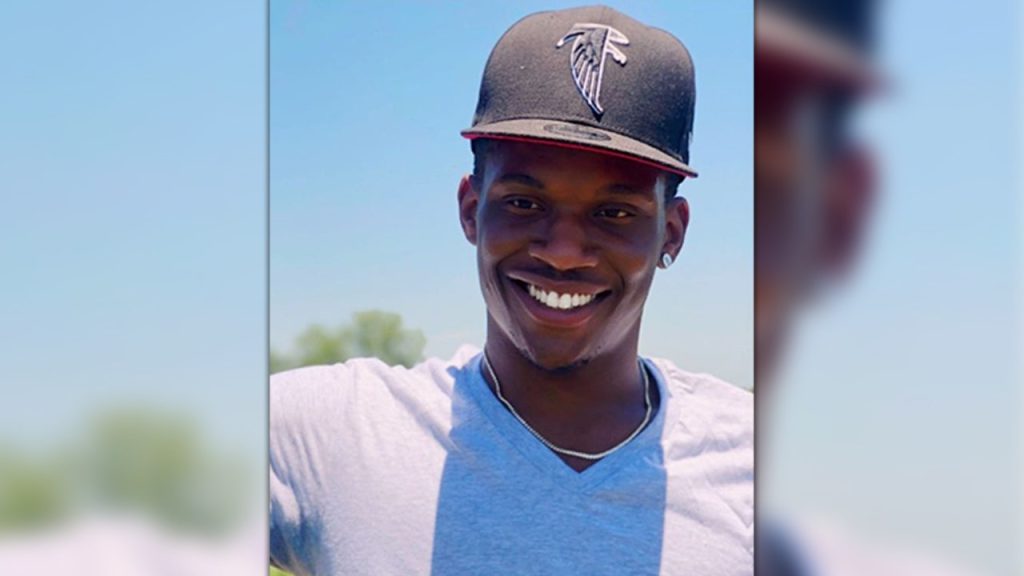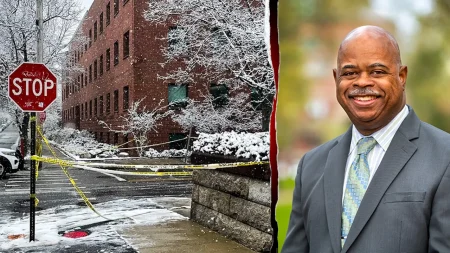The tragic death of 27-year-old Joshua Armour on the premises of a Sealy Mattress Company facility in Conyers, Georgia, has sparked a wrongful death lawsuit against the mattress manufacturer, alleging negligence and disregard for human life. Armour, who disappeared in October amidst a mental health crisis, was found deceased inside a locked trailer on the company’s property a week after his family initiated a desperate search. The lawsuit, filed by Armour’s loved ones, paints a disturbing picture of corporate indifference towards a vulnerable individual, prioritizing the protection of company assets over a human life in distress.
The lawsuit’s narrative centers on the family’s frantic efforts to locate Armour after his disappearance. Using phone location tracking, they pinpointed his last known location to the Sealy Mattress facility. Upon informing a supervisor about their discovery and expressing their concerns, the family was met with a chilling response. Instead of assisting in the search, employees were allegedly instructed to lock all trailers, ostensibly due to the presence of an unknown individual on the property. The family’s pleas to search the premises were denied, and they were asked to leave, effectively hindering their efforts to find their missing loved one. This act of dismissal, according to the lawsuit, directly contributed to the tragic outcome.
The discovery of Armour’s body a week later inside a locked trailer on the very property the family had identified underscores the alleged negligence and callous disregard for human life. The lawsuit contends that Sealy’s inaction and prioritization of property protection over a potential life-saving intervention directly led to Armour’s “horrific and inexplicable” death. The family’s legal team argues that had Sealy cooperated with their search efforts and taken appropriate measures, Armour’s life could have been saved.
The lawsuit further alleges that Sealy’s failure to act stems from a conscious disregard for Armour’s well-being and the family’s pleas for assistance. This alleged prioritization of property over human life forms the crux of the family’s legal claim, painting a picture of corporate indifference towards a vulnerable individual in need. The family’s attorney, Mark Johnson, highlights the apparent lack of cooperation from Sealy even after the tragic discovery, citing their unanswered requests for surveillance footage that could shed light on the events leading up to Armour’s death.
Sealy, in a public statement, has expressed condolences and stated their commitment to investigating the incident and cooperating with authorities. However, the family’s legal team disputes this claim of cooperation, citing the company’s refusal to share crucial surveillance video that could corroborate or refute their version of events. The existence of this video, reportedly showing an unidentified person on the property the night of Armour’s disappearance, becomes a pivotal point of contention. The family’s inability to access the footage, despite repeated requests, fuels their suspicion of a cover-up and reinforces their belief that Sealy is prioritizing protecting its image over uncovering the truth.
The lawsuit seeks justice for Joshua Armour and accountability for the alleged negligence that led to his death. The family’s pursuit of a jury trial underscores their determination to expose what they perceive as a corporate culture that values property over human life. The case raises profound questions about corporate responsibility and the duty of care owed to individuals, even those who may be experiencing a mental health crisis. The family’s legal battle also highlights the crucial role of transparency and cooperation in such tragic circumstances, elements they allege were sorely lacking in Sealy’s response to their son’s disappearance and subsequent death. The outcome of this trial could have significant implications for corporate liability in similar situations, potentially setting a precedent for how companies handle situations involving vulnerable individuals on their property. The family’s fight for justice not only seeks to hold Sealy accountable but also aims to prevent similar tragedies from occurring in the future.











